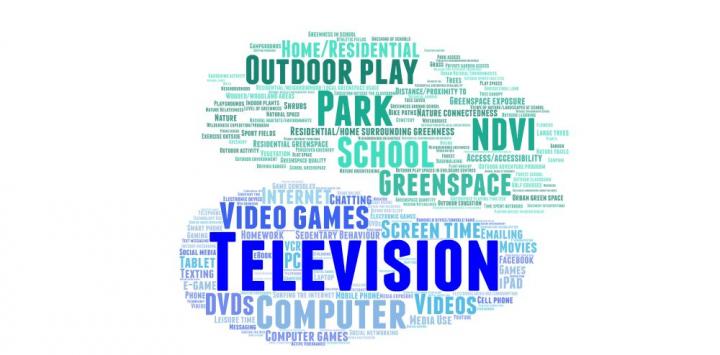
Credit: Oswald TK, et al (2020); PLOS ONE, CC BY 4.0
Less screen time and more green time are associated with better psychological outcomes among children and adolescents, according to a study published September 4 in the open-access journal PLOS ONE by Tassia Oswald of the University of Adelaide, and colleagues.
The prevalence of mental illness among children and adolescents is increasing globally. Technological developments in recent decades have increased young people’s engagement with screen-based technologies (screen time), and a reduction in young people’s contact with nature (green time) has been observed concurrently. This combination of high screen time and low green time may affect mental health and well-being. But research investigating the psychological impacts of screen time or green time typically considers each factor in isolation and fails to delineate the reciprocal effects of high technology use and low contact with nature on mental health and cognitive outcomes. To address this question, Oswald and colleagues analyzed the findings of 186 studies to collate evidence assessing associations between screen time, green time, and psychological outcomes (including mental health, cognitive functioning, and academic achievement) for children and adolescents.
In general, high levels of screen time appeared to be associated with unfavorable psychological outcomes, while green time appeared to be associated with favorable psychological outcomes. Young people from low socioeconomic backgrounds were underrepresented in the literature overall and may be disproportionately affected by high screen time and low green time, making this a priority group for future research. However, additional longitudinal studies and RCTs are needed to determine whether decreasing screen time and increasing green time would improve psychological outcomes. According to the authors, preliminary evidence suggests that green time could potentially buffer the consequences of high screen time, meaning nature may be an under-utilized public health resource to promote youth psychological well-being in a high-tech era. Investment in more rigorous research is needed to explore this.
Oswald adds: “This systematic scoping review highlights that nature may currently be an under-utilised public health resource, which could potentially function as an upstream preventative and psychological well-being promotion intervention for children and adolescents in a high-tech era. However, robust evidence is needed to guide policies and recommendations around appropriate screen time and green time at critical life stages, to ultimately ensure optimal psychological well-being for young people.”
###
Citation: Oswald TK, Rumbold AR, Kedzior SGE, Moore VM (2020) Psychological impacts of “screen time” and “green time” for children and adolescents: A systematic scoping review. PLoS ONE 15(9): e0237725. https:/
Funding: TKO and SGEK were both supported by Australian Government Research Training Program Scholarships (https:/
Competing Interests: The authors have declared that no competing interests exist.
In your coverage please use this URL to provide access to the freely available article in PLOS ONE: https:/
Media Contact
Tassia Oswald
[email protected]
Original Source
https:/
Related Journal Article
http://dx.




